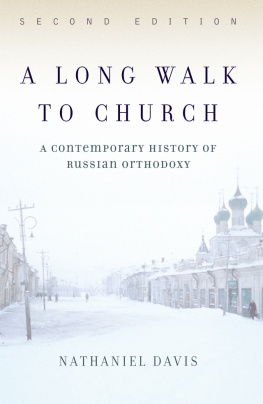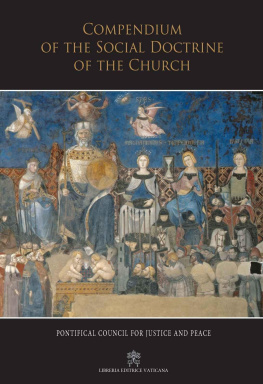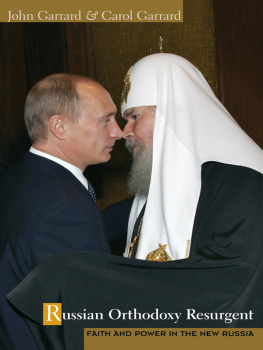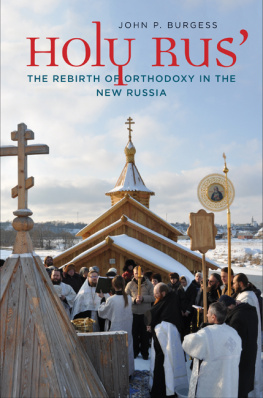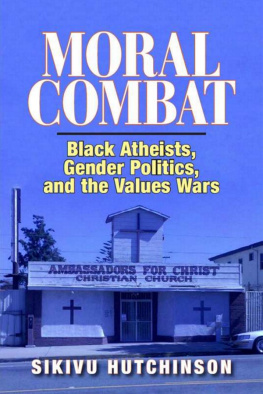Orthodox Revivalism in Russia
Orthodoxy has achieved a large-scale revival in Russia following the collapse of Communism. However, paradoxically, although there is a high level of identification with Orthodoxy, there is in fact a low level of church attendance. This book, based on in-depth ethnographic fieldwork, explores the social background and moral attitudes of the little flock of believers who actively participate in religious life. It reveals that the complex moral beliefs of the faithful have a disproportionately high impact on Russian society overall; that among the faithful there is a strong emphasis on striving for personal perfection; but that also there are strong collective ideas concerning religious nationalism and the synergy between the secular and the religious.
Milena Benovska is a Professor in the Department of Ethnology and Balkan Studies at the South-West University of Blagoevgrad, Bulgaria.
Routledge Religion, Society and Government in Eastern Europe and the Former Soviet States
Series Editor
Lucian Leustean is Reader in Politics and International Relations at Aston University, Birmingham, United Kingdom.
This Series seeks to publish high quality monographs and edited volumes on religion, society and government in Eastern Europe and the former Soviet States by focusing primarily on three main themes: the history of churches and religions (including, but not exclusively, Christianity, Islam, Judaism and Buddhism) in relation to governing structures, social groupings and political power; the impact of intellectual ideas on religious structures and values; and the role of religions and faith-based communities in fostering national identities from the nineteenth century until today.
The Series aims to advance the latest research on these themes by exploring the multi-facets of religious mobilisation at local, national and supranational levels. It particularly welcomes studies which offer an interdisciplinary approach by drawing on the fields of history, politics, international relations, religious studies, theology, law, sociology and anthropology.
Orthodox Religion and Politics in Contemporary Eastern Europe
On Multiple Secularisms and Entanglements
Edited by Tobias Kllner
Forced Migration and Human Security in the Eastern Orthodox World
Edited by Lucian N. Leustean
Religion during the Russian-Ukrainian Conflict
Edited by Elizabeth A. Clark and Dmytro Vovk
Russian Orthodoxy, Nationalism and the Soviet State during the Gorbachev Years, 198591
Sophie Kotzer
Orthodox Revivalism in Russia
Driving Forces and Moral Quests
Milena Benovska
For more information about this series, please visit: www.routledge.com
First published 2021
by Routledge
2 Park Square, Milton Park, Abingdon, Oxon OX14 4RN
and by Routledge
52 Vanderbilt Avenue, New York, NY 10017
Routledge is an imprint of the Taylor & Francis Group, an informa business
2021 Milena Benovska
The right of Milena Benovska to be identified as author of this work has been asserted by her in accordance with sections 77 and 78 of the Copyright, Designs and Patents Act 1988.
All rights reserved. No part of this book may be reprinted or reproduced or utilised in any form or by any electronic, mechanical, or other means, now known or hereafter invented, including photocopying and recording, or in any information storage or retrieval system, without permission in writing from the publishers.
Trademark notice: Product or corporate names may be trademarks or registered trademarks, and are used only for identification and explanation without intent to infringe.
British Library Cataloguing-in-Publication Data
A catalogue record for this book is available from the British Library
Library of Congress Cataloging-in-Publication Data
A catalog record for this book has been requested
ISBN: 978-0-367-47420-1 (hbk)
ISBN: 978-1-003-03547-3 (ebk)
Typeset in Times New Roman
by Apex CoVantage, LLC
To Ivan (19502013)
The intention to write this book dates back to 2006, when I got the opportunity to develop an associated project with the research group Religion and Morality in European Russia (20062008) of the Max Planck Institute of Social Anthropology in Halle/Saale. My appreciation goes first and mostly to this Institute. I would like to express my gratitude to its director, Prof. Chris Hann, and to members of the research group: Tnde Komromi, Tobias Kllner, Agata adykowska, Detelina Tocheva, and Jarrett Zigon, for productive discussions, exchange of ideas, and useful comments on my research papers. I am also grateful to the administrative team of this Institute; last but not least, to its excellent librarians.
The anthropologist Jennifer Cash, who did English language editing, deserves my special appreciation. Due to her work, my manuscript was significantly improved and became more readable.
A number of institutions and individuals backed up my fieldwork in the city of Kaluga in 2006 and 2007 (total of three months). European University in St. Petersburg helped me to conduct my pilot study in 2006 and provided administrative documents required to obtain a Russian visa. I am grateful to Prof. Albert Baiburin and to Elena Kokorina, both from the Faculty of Anthropology at the European University, and again to the devoted team of university librarians.
The sociologist Prof. Viacheslav Popkov from Kaluga helped to arrange my stay in this city during the hot summer of 2007. I owe special appreciation to my research assistant Natalija Makarova: Without her energetic assistance, I would not have managed to organize my research during the short time I had. My gratitude goes also to the parish priests E.K. and A.B. from Kaluga, for their time and their blessing (i.e. permission) to carry out research observations among their parishes.
After long years of struggle with academic precarity in my native country of Bulgaria, personal losses, and a failure to organize another field trip to Kaluga I considered indispensable, in 2018, I received a research grant from German research foundation DAAD. It gave me the opportunity to complete the present book, spending two precious months in 2018 at the Max Planck Institute of Social Anthropology in Halle/Saale and profiting from its library resources and the friendly environment. I express my gratitude to both institutions.
I am grateful to the publishing team of Routledge, especially to series editor Lucian Leustean and Peter Sowden, for their helpful suggestions and comments.
I thank my family for their patience and understanding during the periods of research spent away from home.
Finally, my warmest appreciation goes to those Orthodox believers from Kaluga who shared their time, friendship, and hospitality with me. This book is about them.
In the final days of August 2007, I was preparing my departure from Kaluga, a regional capital city in Central Russia. While I was buying small gifts for my family in a nearby supermarket, I noticed that I was being watched. I recognized one of my interlocutors, a regular worshiper in a parish where I had conducted field-work. The man critically scrutinized my purchases and offered to teach me how to recognize the commodities marked by barcodes that, he thought, were hiding the deadly dangerous number 666, the number of the Beast (i.e. Satan). The man was one of the so-called


